Food is not just something that sustains us—it is an essential part of life that connects us to
our history, culture, and even our emotions. It serves a basic function by providing the
energy we need to function, but it also enriches our experiences, influences social
structures, and has become an expression of identity in modern society. This article will
delve into the different dimensions of food: its nutritional value, cultural significance, and the
influence it has on both our bodies and the world.
The Role of Nutrition in Food
At its most fundamental level, food is necessary for survival. The human body requires a
variety of nutrients to operate efficiently, including carbohydrates, proteins, fats, vitamins,
and minerals. Each of these nutrients plays a critical role in maintaining bodily functions,
from providing energy for daily activities to ensuring the proper functioning of organs and
systems.
Carbohydrates are the body’s primary source of energy. They break down into glucose,
which is used by the body for fuel. Whole grains, fruits, vegetables, and legumes are rich in
complex carbohydrates that provide sustained energy throughout the day.
Proteins are essential for the growth and repair of tissues. The body uses protein to build
muscle, repair cells, and create enzymes and hormones. Animal products like meat, dairy,
and eggs are common sources of protein, but plant-based alternatives like beans, tofu, and
lentils are also rich in protein.
Fats are often misunderstood, but they are crucial for proper bodily function. Healthy fats,
found in foods like avocados, nuts, seeds, and olive oil, support cell function, protect organs,
and assist in the absorption of certain vitamins. Fats are also vital for hormone regulation
and brain health.
Vitamins and minerals are required in small amounts, but they play significant roles in
maintaining health. For example, vitamin C, found in citrus fruits, boosts immunity, while
calcium in dairy products supports strong bones and teeth. Iron, found in red meat and
spinach, is crucial for transporting oxygen throughout the body.
Proper nutrition is essential not only for maintaining energy levels but also for preventing
diseases. A balanced diet can reduce the risk of chronic conditions like obesity, diabetes,
and heart disease. On the other hand, poor food choices, such as excessive intake of
processed foods or sugary snacks, can lead to long-term health problems.
The Cultural Significance of Food
Food also carries immense cultural significance. It is at the heart of celebrations, family
gatherings, and religious observances. From Thanksgiving dinners in the United States to
Diwali sweets in India, food acts as a unifier that brings people together, creating bonds that
transcend generations and geographical boundaries.
In many cultures, food is an expression of identity. Each cuisine reflects the geography,
climate, history, and traditions of a region. Italian pasta, Mexican tacos, Indian curries, and
Japanese sushi are not only delicious but also serve as symbols of cultural heritage.
Ingredients, techniques, and recipes are passed down from one generation to the next,
preserving stories and history.
In addition to cultural identity, food plays a role in social structure. In many societies, shared
meals are an opportunity for social interaction, whether it’s a family dinner or a dinner party
among friends. In slot4d , food is seen as a form of hospitality, where guests are
treated to a feast as a sign of respect. The act of preparing and sharing food builds
relationships, strengthens bonds, and fosters a sense of community.
Food also has deep spiritual meaning in many religions. For instance, in Christianity, bread
and wine symbolize the body and blood of Christ. In Islam, fasting during Ramadan is an
important religious observance, and the sharing of meals during the month fosters a sense
of unity and gratitude. Similarly, in Hinduism, offerings of food to gods during rituals and
prayers are viewed as a means of connecting with the divine.
The Psychological Connection to Food
Beyond nutrition and culture, food has a psychological connection to our emotions. People
often associate food with comfort, memory, and even identity. For instance, the smell of
fresh-baked bread may remind someone of their grandmother’s kitchen, while a bowl of soup
can offer comfort during times of illness.
In moments of stress or sadness, many people turn to food for emotional solace. This
emotional eating is linked to the release of neurotransmitters like serotonin, which can
improve mood temporarily. However, it’s important to recognize that this connection between
food and emotion can sometimes lead to unhealthy eating habits, such as overeating or
choosing foods that are high in sugar and fat.
Food also plays a role in fostering positive memories. Celebrations, milestones, and special
occasions are often centered around meals that are not only nourishing but also meaningful.
The simple act of sharing a meal with loved ones can create lifelong memories and reinforce
a sense of happiness and security.
The Global Impact of Food
In today’s globalized world, food has become more than just a local or regional affair. With
the rise of international trade and travel, people are now able to enjoy foods from around the
world. While this has led to an increased appreciation of global cuisines, it has also sparked
debates about sustainability, ethics, and the environmental impact of food production.
The global food system is complex, with millions of people working to grow, transport, and
distribute food. However, it is also highly inefficient in many ways, with vast amounts of food
wasted at every stage—from farms to homes. Issues like food scarcity, access to clean
water, and environmental damage caused by industrial agriculture remain serious concerns.
As populations continue to grow, the need for sustainable and equitable food practices
becomes increasingly urgent.
Many movements, such as the farm-to-table movement or the rise of plant-based diets,
emphasize the importance of local, sustainable, and ethical food production. By supporting
local farmers, reducing food waste, and being more conscious of food choices, individuals
can make a significant impact on the environment and global food systems.
Conclusion
Food is much more than sustenance; it is an integral part of our lives, influencing our health,
culture, emotions, and the planet. As we continue to navigate our relationship with food, it is
important to consider not only its nutritional value but also its social, cultural, and
environmental implications. Whether through the joy of sharing a meal with loved ones or the
pursuit of better health, food is a universal thread that connects us all, making it one of life’s
most enduring and meaningful experiences.
The Importance of Food: A Journey Through Taste, Culture, and Nutrition
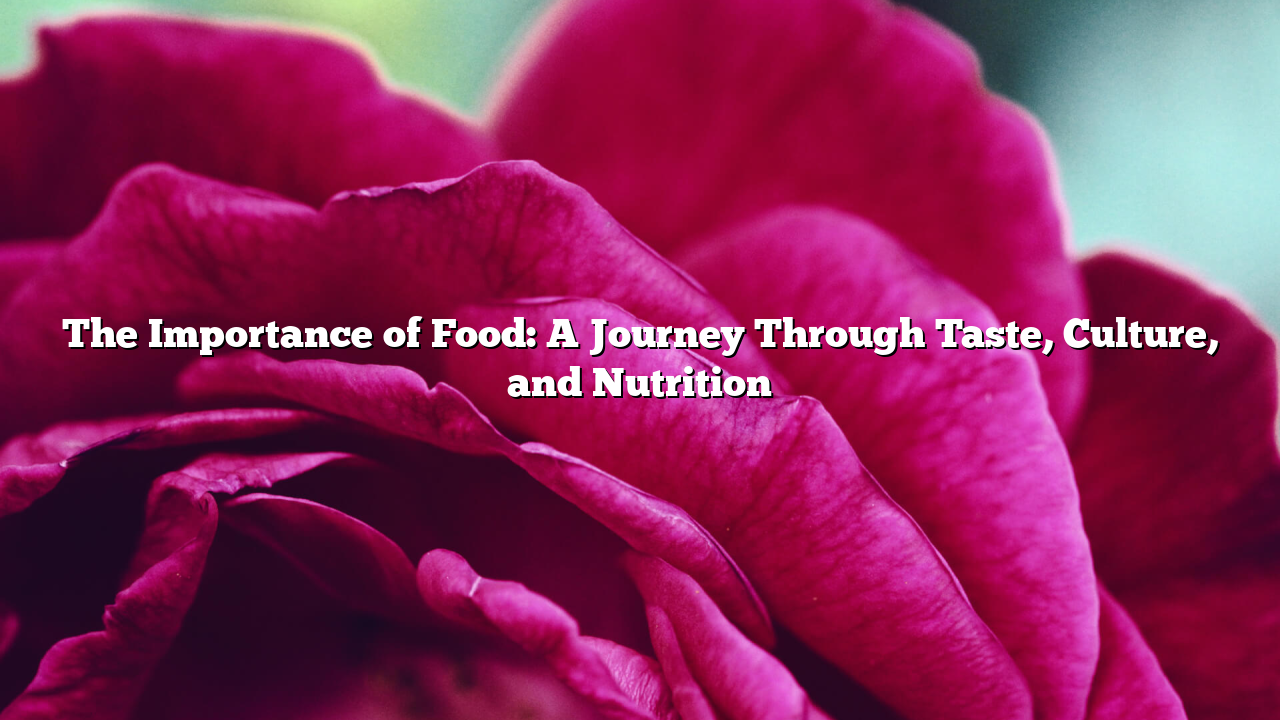
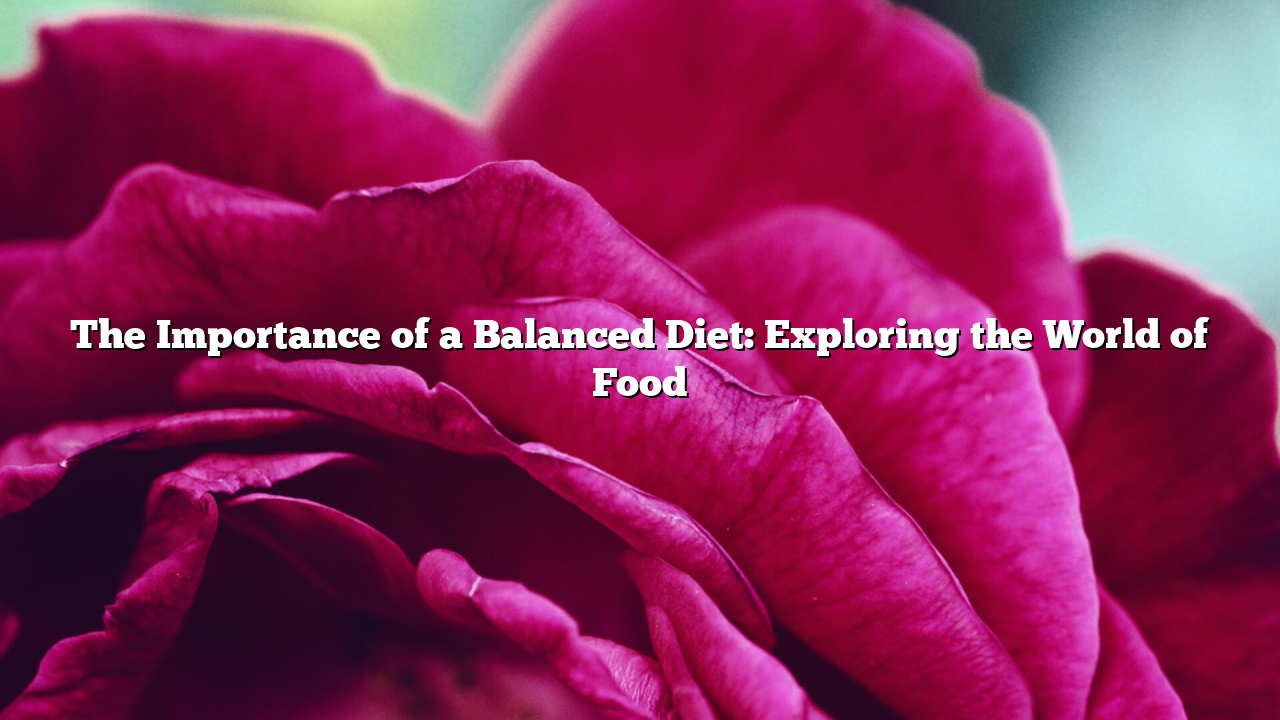
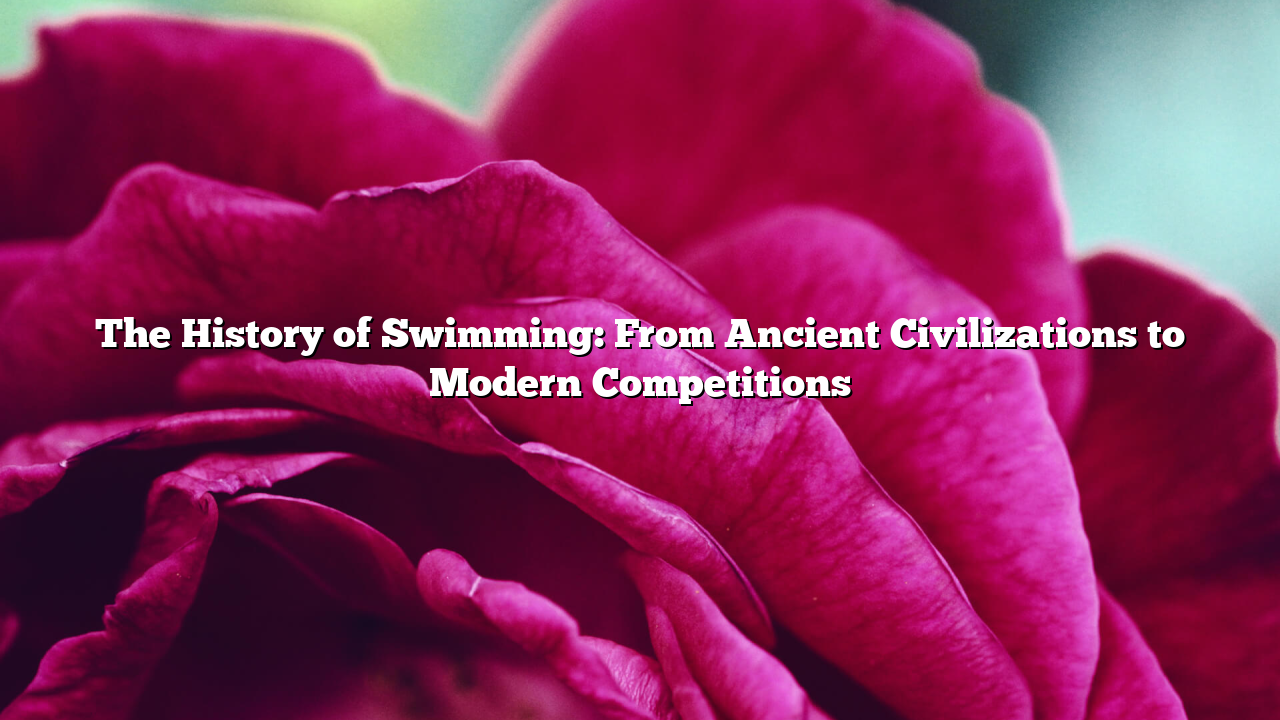


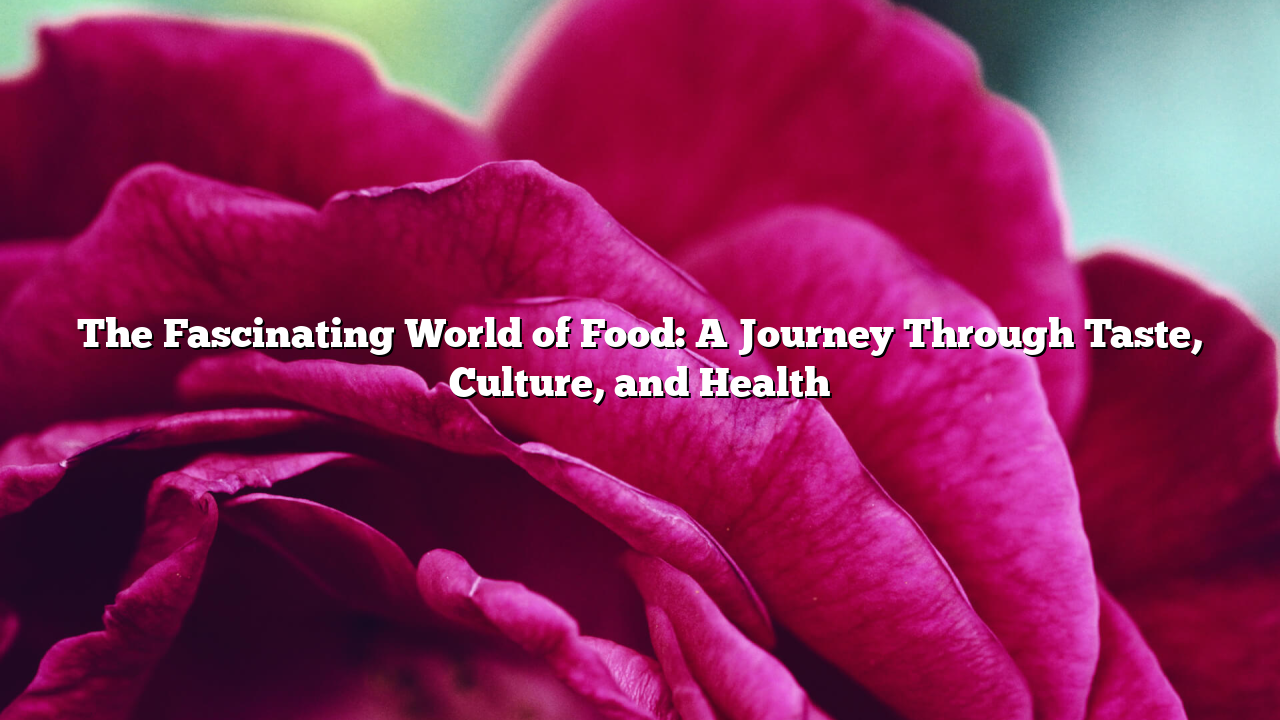
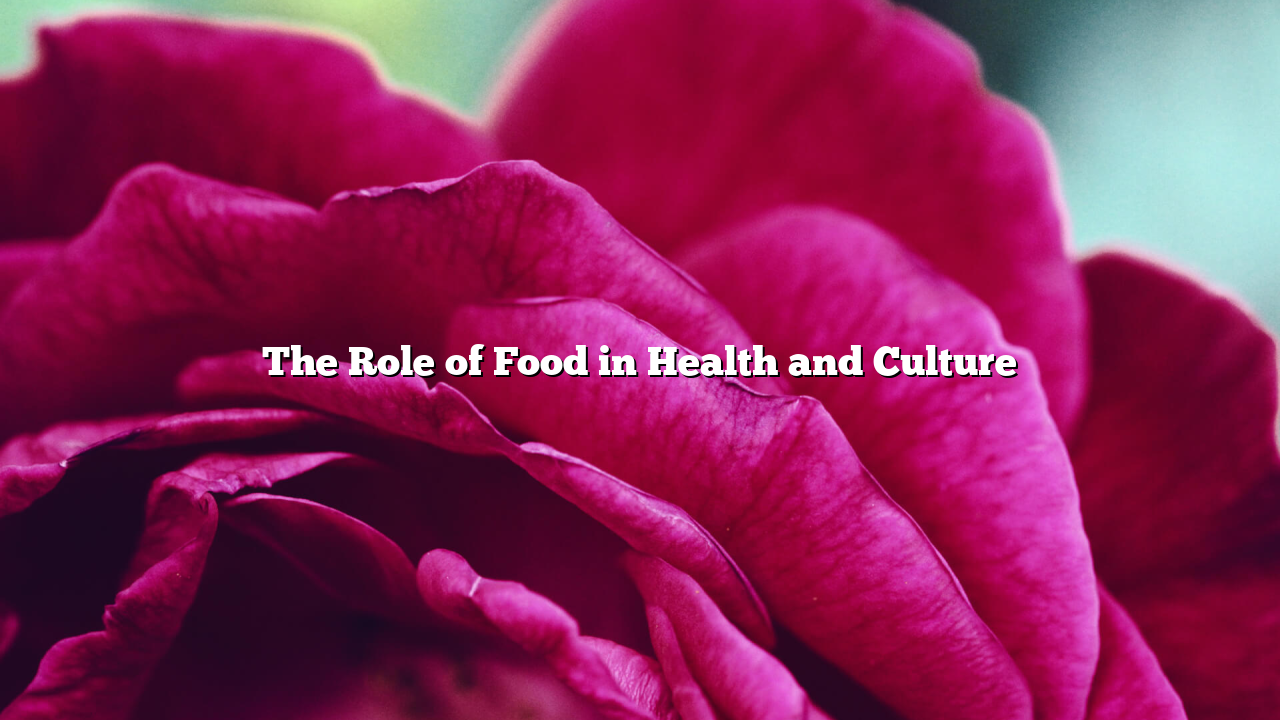


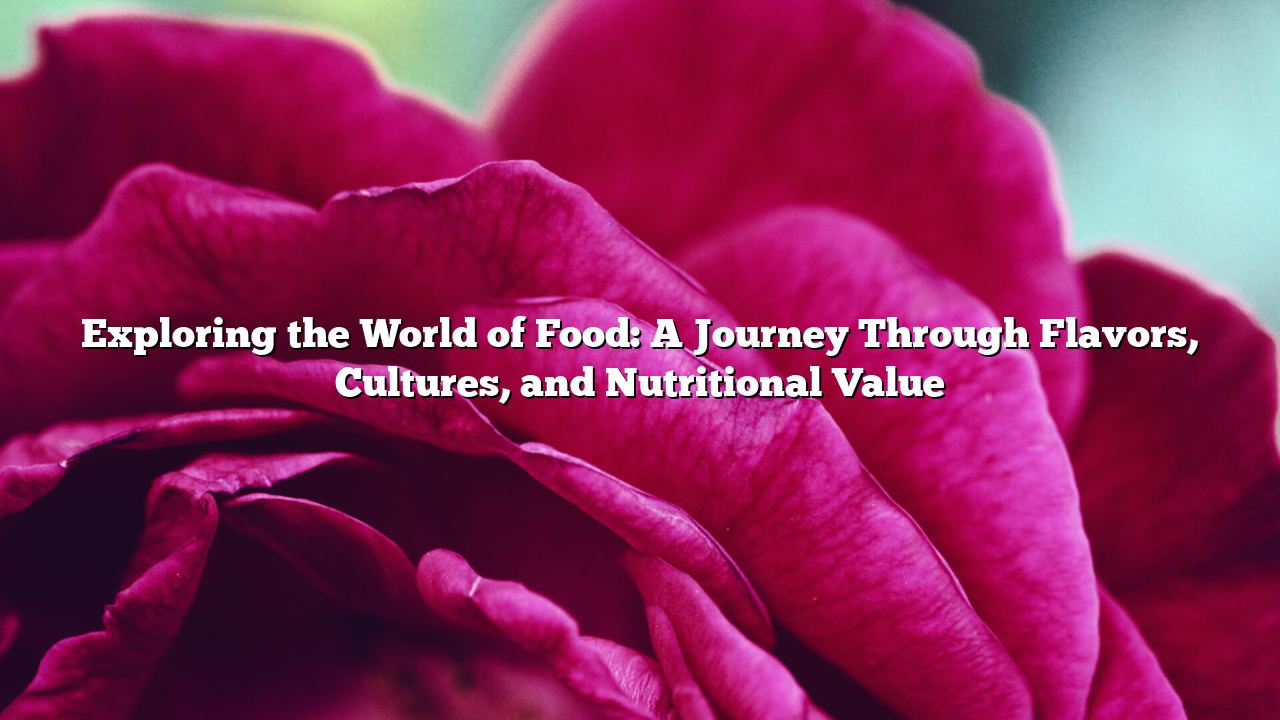
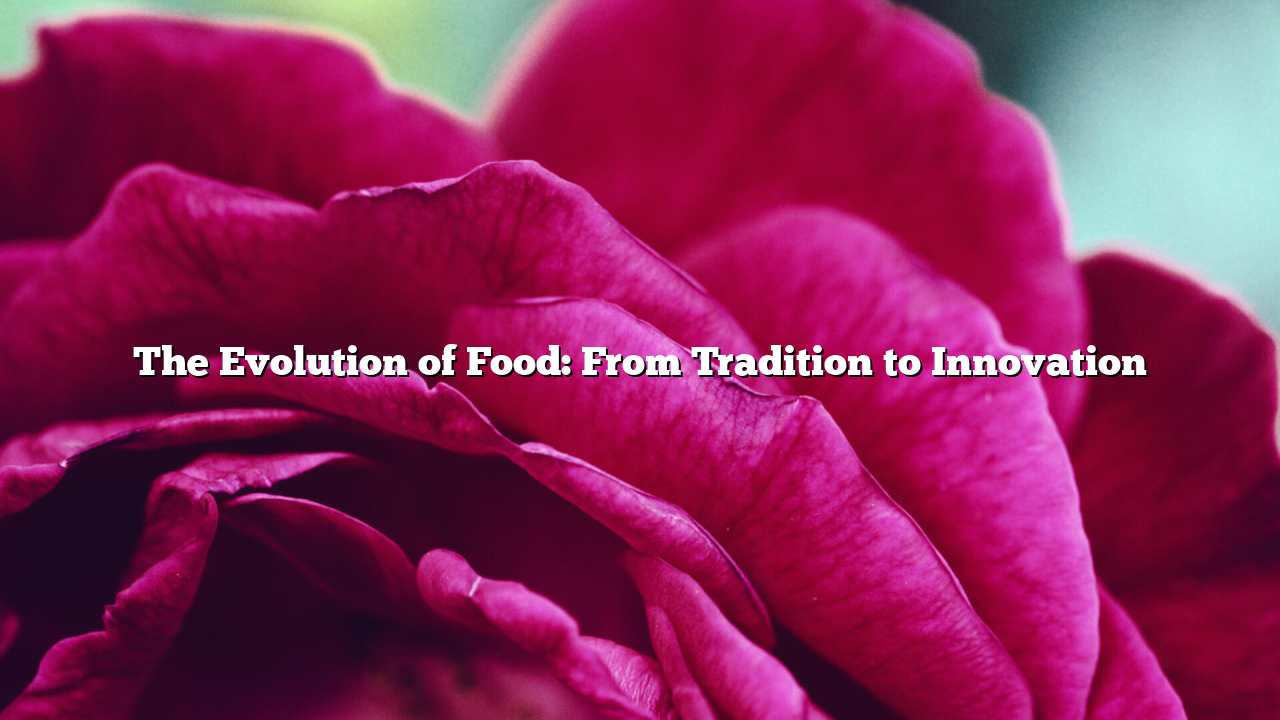
Leave a Reply